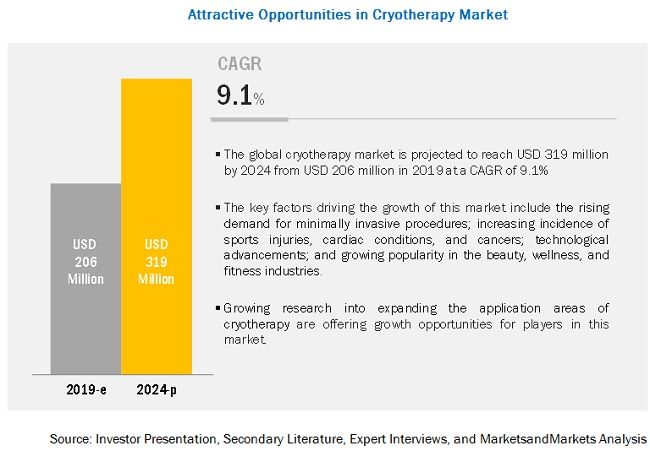Chilling Out with Cryotherapy
Cryotherapy is a treatment using freezing or near-freezing temperatures for treating health conditions like pain, cancerous and benign tumors, tissue damages or lesions, and sports injuries. Ice cold liquid, in many instances water, is stimulating to the body and often can help tissues and ligaments to heal by increasing blood flow.
Being minimally invasive and drug-free, medical practitioners are looking at cryotherapy for additional treatment of other medical conditions and disease. In fact, medical market research analysts expect the growth in the cryotherapy market to be driven by an increase in sports injuries, cardiac disease, cancer, and advancements in cryotherapy technology.

Source: https://www.marketsandmarkets.com/Market-Reports/cryotherapy-market-33280524.html